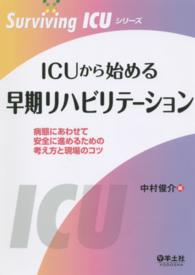Full Description
The Routledge Handbook of Transdisciplinary Systemic Functional Linguistics offers a groundbreaking exploration of how M.A.K. Halliday's influential work extends beyond traditional linguistic boundaries to address today's most complex problems.
A key barrier to transdisciplinary research is language, whether due to differing terminology or the lack of a shared research vocabulary. This challenge reflects deeper epistemological divides, as language shapes how knowledge is constructed and communicated across disciplines. This collection shows how Systemic Functional Linguistics (SFL) provides effective tools for addressing complex cross-disciplinary issues. Beginning with Halliday's foundational work, it traces the development of SFL and its applications. The first section highlights how SFL supports meaning-making in areas such as child development and healthcare, emphasizing language's role in identity. Later sections explore its use in political, cultural, and environmental contexts, as well as in technology and AI. The volume concludes by outlining how language theory can help address critical societal challenges through interdisciplinary collaboration.
This book a valuable resource for students and scholars in applied linguistics, SFL, forensic linguistics, computational linguistics, and language and communication.
Contents
Part 0: A View to Transdisciplinarity - 1: On the Nature of Linguistics and its Transdisciplinary Potential, Rebekah Wegener, Lise Fontaine, Anne McCabe; 2: SFL and Functional Models of Language: Multidisciplinarity or Transdisciplinarity?, Jacques François and Akila Sellami Baklouti. Part I: The Individual in a Transdisciplinary Perspective - 3: Child Language Development, Clare Painter & Susan Feez; 4: Working Transdisciplinarily in Content and Language Integrated Learning Programs, Ana Llinares, Rachel Whittaker, Tom Morton; 5: Transdisciplinary SFL Praxis with Multilingual Youth and Educators, Ruth Harman, Xiaodong Zhang, Dan Jin; 6: Bilingual Strata: Neurocognitive Insights for Systemic Functional Linguistics, Matías Morales, Edinson Muñoz, Adolfo M. García; 7: Conceptual Metaphor Between Universality and Variation: An SFL Perspective on Context, Fatma Benelhadj; 8: Clinical Linguistics: A Focus on Interactions and an Interpersonal Perspective, Elizabeth Armstrong, Rimke Groenewold, Deborah Hersh, Christa Akers, Mary-Pat O'Malley, Nicole Muller; 9: Language in Affective Disorders: The Opportunities of a Functional Approach, Jamie Williams. Part II: Social Processes in a Transdisciplinary Perspective - 10: Thematic and Methodological Transdisciplinarity in SFL-related Studies of Ideology, Erich Steiner; 11: Ecolinguistics and the Rethinking of Society: From Grammar to Narrative, Arran Stibbe; 12: A Transdisciplinary Study of Language Reports Across Registerial Variation, Nesrine Triki; 13: Transdisciplinary Approaches in Translation Studies Empowered by Systemic Functional Linguistics, Bo Wang, Christian M.I.M. Matthiessen, Yuanyi Ma; 14: "When Language Becomes the Evidence...": An Analysis of the TRANSITIVITY Patterns in Two High-profile Criminal Trials of the 1990s, Leanne Bartley; 15: Functional(ist) Approaches to Promotional Discourse, Hartmut Stöckl; 16: Towards a Transdisciplinary Approach to the Analysis of the Digital Text of Software Installation, Dorra Moalla; 17: Halliday's Transdisciplinarity Meets Hasan's Systemic Socio-Semantic Stylistics (SSS): Exploratory Reflections, Donna R. Miller. Part III: Tools and Technology in a Transdisciplinary Perspective - 18: Transdisciplinary Research on Language Behaviour in Situational Context, Stella Neumann; 19: Register Revisited: Information Theory as a Bridge Between Functional Description and Cognitive Explanation, Stefania Degaetano-Ortlieb, Elke Teich; 20: Systemic Transdisciplinary Theory of Cross-disciplinary Social Research Method Appropriation: Face-to-face Interviewing, Rodney J. Clarke; 21: The Future of Morphology: A Transdisciplinary Approach, Kateryna Krykoniuk; 22: Knowledge Graphs for Digital Humanities and Linguistics, Krzysztof Kutt, Luiz do Valle Miranda, Jakub Gomułka, Ricardo Alonso-Maturana, Susana López-Sola, José Palma, Grzegorz J. Nalepa; 23: Form and Function: Automatic Methods for Prediction of Functions, Serge Sharoff; 24: Linguistics and Artificial Intelligence - A Match Made in Heaven for Solving Real Business Problems, August Stapput, Anders Kofod-Petersen; 25: Transdisciplinary Perspectives on Human-Computer Interaction and Artificial Intelligence, Jörg Cassens. Part IV: Reflections on Transdisciplinarity - 26: Transdisciplinarity Within Systemic Functional Linguistics, Christian M.I.M. Matthiessen; 27: Epilogue: Rebekah Wegener, Anne McCabe, Akila Sellami Baklouti, Lise Fontaine.








